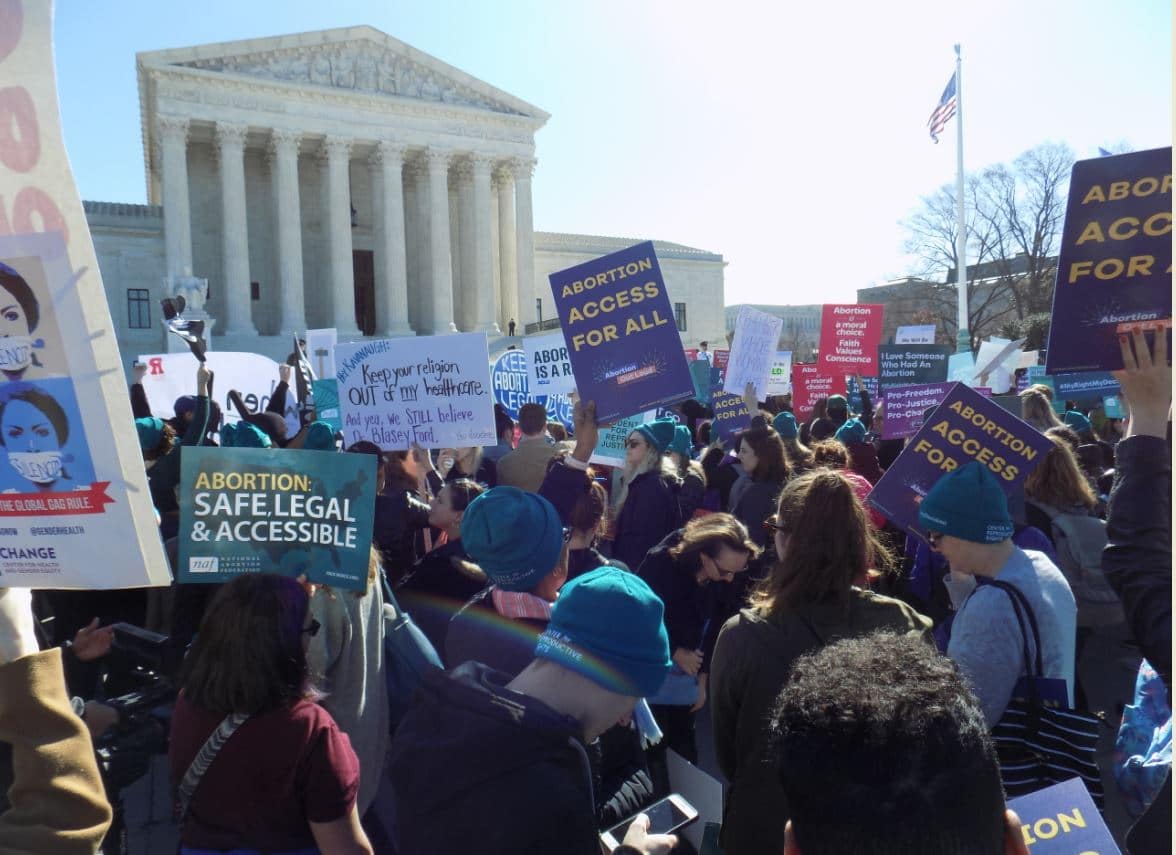Roberts May Cast Deciding Vote in First Major Abortion Case of Trump Era

WASHINGTON — All eyes were on Chief Justice John Roberts Wednesday as the Supreme Court appeared to be sharply divided over issues raised during the first major abortion case of the Trump presidency.
The case out of Louisiana could test whether a high court that has grown more conservative with the additions of Justices Brett Kavanaugh and Neil Gorsuch, may be more willing than past courts to roll back abortion rights.
At issue is a Louisiana law that requires doctors who perform abortions to have admitting privileges at a nearby hospital.
A federal judge found that just one of Louisiana’s three abortion clinics would remain open if the law is allowed to take effect.
But the 5th U.S. Circuit Court of Appeals in New Orleans upheld the law, paving the way for Wednesday’s hearing.
As the case unfolded, hundreds of abortion-rights protestors demonstrated on the sidewalk in front of the Supreme Court building, while a smaller group of anti-abortion demonstrators stood just feet away, trying to drown them out.
Taking the lead among her liberal colleagues on the court, Justice Elena Kagan suggested that the admitting privileges requirement might be wholly unnecessary.
She noted that in the 23 years the Shreveport, Louisiana clinic at the center of the case has provided abortion services, it had transferred only four patients out of 70,000 to a nearby hospital.
“I don’t know a medical procedure where it’s lower than that,” Kagan said.
Julie Rikelman, the Center for Reproductive Rights lawyer who argued the case on behalf of the clinic, said a trial judge found that abortions in Louisiana are safe and that the law provided no health benefits to women, just as the Supreme Court ruled in an earlier Texas case.
“This case is about respect for the court’s precedent,” Rikelman said.
One of the questions raised by the current case is whether the court will ultimately overrule the 2016 decision to which Rikelman referred. That case also involved a requirement that physicians performing abortions have admitting privileges at a local hospital.
Both Justices Gorsuch and Kavanaugh have joined the court since that decision was handed down.
When the justices temporarily blocked the Louisiana law from taking effect a year ago, Roberts joined the court’s four liberal justices to put it on hold. Kavanaugh and Gorsuch were among the four conservatives who would have allowed the law to take effect.
Though preliminary votes do not bind the justices when they undertake a thorough review of an issue, they often signal how a case will come out.
That means Roberts almost certainly will be the deciding vote in this case.
On Wednesday, Roberts did not say much, and didn’t indicate, one way or another, which way he’ll go.
In more than 14 years as chief justice, Roberts has generally voted to uphold abortion restrictions, including in the Texas case four years ago.
The court is expected to render its decision on the case in late June.
























